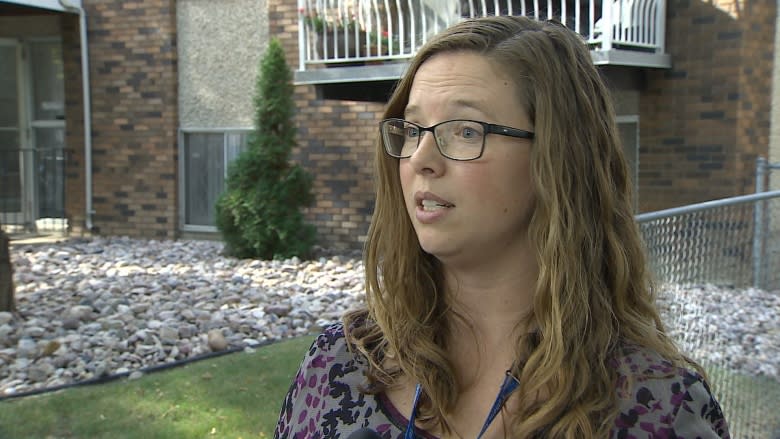New refugees facing ‘unprecedented’ housing challenges
Refugees arriving in Edmonton are facing "unprecedented" challenges finding affordable places to rent, says an agency that works with newcomers.
"People are paying regularly 50 to 85 and sometimes even up to 90 per cent of their income going towards rent," said Kathryn Friesen, program manager with Catholic Social Services.
Refugee families receive a monthly allowance from Ottawa for up to a year after moving to Canada. If they have children, they also qualify for the Child Tax Benefit.
But high rents exacerbate an already challenging situation, said Friesen.
She said refugees eager to succeed are instead forced to leave important English language and skill training to take on two or three jobs in order to make ends meet, while some of their children even drop out to work.
It's a financial struggle that can also lead to health problems or re-traumatize those who have endured war or torture, she said.
"If we're bringing refugees into our country, we want to ensure that they're able to launch themselves from a better starting point," said Friesen, who wants the city and province to build more affordable housing as soon as possible.
"We don't want people to arrive and be crushed by challenges that seem insurmountable."
‘A good place to stay’
Abdurashid Osman Adan, his wife and four children moved to Edmonton from South Africa in April.
"It's a good place to stay," said Adan, who is excited to be upgrading his skills and English so he can get to work.
"And we are glad for Canada to give us a resettlement. Everything's alright."
Adan is unwaveringly upbeat, despite the hardships he has faced. For the first three months after he arrived, he had just 138 dollars left over for food and necessities after he paid rent.
"It was very difficult – the life. But you know, I've got some friends here in Edmonton so that I just borrow some stuff from them so that when I receive the tax … I'm going to pay back them. "
Even now that his Child Tax Benefits have kicked in, rent still gobbles up more than half of his total income.
Adan’s friends continue to help him out by supplying halal meat from their shop, as well as rides and clothing. He also still relies on the Edmonton Food Bank.
Low vacancy rate creates additional challenges
The struggle faced by families like Adan’s are amplified by Edmonton’s already-tight rental market, where even long-time residents are having difficulty finding affordable housing options.
Housing that costs more than 30 per cent of a household's total income is considered unaffordable, according to the Canada Mortgage and Housing Corporation.
At 1.4 per cent, Edmonton's vacancy rate is one of the lowest in the country.
High rents continue to be driven up by an influx of newcomers, with fewer units existing today than 15 years ago, said Jay Freeman, executive director of Housing and Homelessness with the City of Edmonton.
More than 50 new affordable housing units, currently under construction at 127th Street and 144th Avenue, will become available next month, said Freeman.
There are also plans in place to build an additional 2,400 affordable-housing units at the Blatchford development in the former City Centre Airport lands. According to the city's website, the first homes on the Blatchford lands are expected to be completed in 2016 or 2017.



